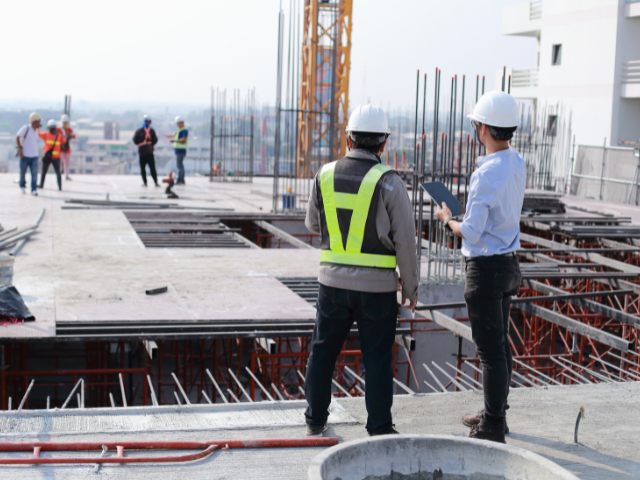Site work is a critical aspect of construction projects that requires a significant level of planning, preparation, and execution. It involves the process of preparing the land for the actual construction work to begin. Good site work requires careful attention to detail, strict adherence to standards and best practices, and the use of advanced technology and equipment. In this blog, we will explore the six factors that make-up good sitework and the best practices that can help achieve them.
1. Soil Conditions Assessment
Assessing the soil condition of the site is the first step in any site work project. The soil condition determines the type and amount of foundation required for the construction project. The assessment should involve soil sampling and analysis to identify the soil’s characteristics such as density, texture, moisture content, and strength. A geotechnical engineer can provide a detailed report on the soil condition and recommend the appropriate foundation design.
2. Clearing and Grading
Clearing and grading are the processes of removing trees, shrubs, and other vegetation from the site and leveling the land to the required elevation. This process also involves removing rocks, debris, and other obstacles that could impede the construction process. Clearing and grading require the use of specialized equipment such as bulldozers, excavators, and graders to ensure the site is prepared adequately for the construction work.
3. Drainage and Erosion Control
Proper drainage is critical to any site work project. It involves designing and installing drainage systems such as pipes, ditches, and swales to divert water away from the construction site. The drainage system should be designed to accommodate the expected volume of water flow and ensure that it does not cause any damage to the site or surrounding properties. Erosion control measures such as silt fences and erosion control blankets should also be used to prevent soil erosion and protect the site’s natural environment.
4. Utilities Installation
Utilities installation involves the design and installation of electrical, water, sewer, and gas systems. These systems should be designed to meet the local code requirements and accommodate the needs of the construction project. The installation should be carried out by licensed professionals and inspected to ensure compliance with the local regulations.
5. Pavement and Surface Preparation
Pavement and surface preparation involves preparing the site for the construction of roads, parking lots, and other surfaces. The preparation should involve the proper grading of the land to ensure that the surface is level and has adequate drainage. The sub-base should also be properly compacted to provide a stable foundation for the pavement. Proper surface preparation is critical to the longevity and durability of the pavement.
6. Environmental Compliance
Environmental compliance is an essential aspect of any site work project. Construction activities can have significant impacts on the natural environment, and it is essential to comply with the local environmental regulations. This involves obtaining the necessary permits, ensuring proper disposal of construction waste, and implementing erosion and sediment control measures. Compliance with environmental regulations is critical to avoiding fines and delays in the construction project.
Best Practices for Good Site Work
While every construction site has unique needs, some best practices can help ensure that the site work is done correctly, safely, and efficiently. Here are some tips to follow when planning and executing sitework:
- Work with experienced sitework contractors: Choose a contractor who has extensive experience in sitework and a proven track record of success in similar projects.
- Create a detailed site plan: Before starting any sitework, develop a detailed site plan that includes all necessary information, such as site layout, drainage plans, and utilities placement. This plan should be reviewed and approved by all stakeholders.
- Maintain open communication: Communication is key when it comes to construction sitework. Ensure that all parties involved in the project are informed and updated throughout the process.
- Prioritize safety: Safety should be the top priority during sitework. Make sure that the site is properly marked and fenced, and that all workers have the necessary protective equipment and training.
- Use quality materials: Choosing the right materials for your sitework is crucial. Use materials that are durable, reliable, and suited to the site conditions.
- Follow environmental regulations: Construction sitework can have a significant impact on the environment. Be sure to follow all local and federal regulations regarding environmental protection.
- Regularly inspect the site: Regular inspections can help catch potential issues early and ensure that the sitework is progressing according to plan.
- By following these best practices, you can help ensure that your construction sitework is completed on time, on budget, and to the highest possible standards.
Proper sitework is essential to ensuring a successful construction project. It is important to work with a qualified and experienced sitework contractor who can handle all aspects of the job, from land clearing and excavation to grading and drainage.
At Verdeterre, we understand the importance of good sitework and the role it plays in the success of a construction project. That’s why we are dedicated to providing our clients with the highest quality sitework services available. Our team of experienced professionals has the skills and expertise to handle even the most complex sitework projects, and we are committed to delivering results that exceed our clients’ expectations.
Whether you’re in need of land clearing, excavation, grading, or drainage services, Verdeterre Contracting has you covered. We are committed to providing our clients with the best possible service, and we stand behind the quality of our work. Contact us today to learn more about our sitework services and how we can help make your next construction project a success.


